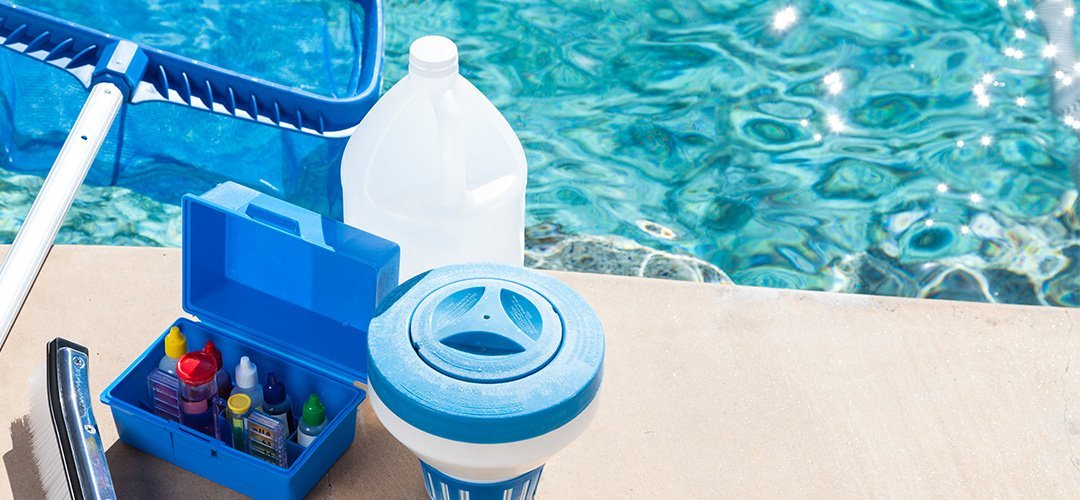
12 Pool Maintenance Myths Debunked
Maintaining a swimming pool can seem daunting, especially with the plethora of myths circulating about the best practices. These myths often lead to unnecessary expenses, wasted time, and sometimes even damage to your pool. To help you navigate through the misinformation, here are twelve common pool maintenance myths debunked.
1. Myth: Pool Maintenance Takes Too Much Time
Reality: Regular Maintenance Saves Time
Many people believe that maintaining a pool requires hours of effort each week. In reality, consistent, small tasks can keep your pool in great shape with minimal time commitment. Regular skimming, brushing, and checking chemical levels can take as little as 15-30 minutes a week, making maintenance manageable and efficient. Of course, you still need to ensure you have a professional pool service in place. Check out the Pool Service by Premier Pool Service for the best in quality and reliability.
2. Myth: Chlorine Pools Are Unsafe
Reality: Properly Managed Chlorine Pools Are Safe
Chlorine is a highly effective disinfectant, keeping your pool water clean and free of harmful bacteria and algae. When maintained at appropriate levels (1-3 ppm), chlorine pools are safe for swimmers. Issues such as skin irritation and strong odors typically arise from improper chlorine balance or poor maintenance practices.
3. Myth: Saltwater Pools Are Chemical-Free
Reality: Saltwater Pools Still Use Chlorine
A common misconception is that saltwater pools don’t use any chemicals. In fact, saltwater pools generate chlorine through a salt-chlorine generator. This process produces a consistent, low level of chlorine, making the water gentler on the skin and eyes while still providing effective sanitation.
4. Myth: You Only Need to Test the Water Weekly
Reality: Frequent Testing Is Crucial
While testing your pool water weekly is a good practice, more frequent testing is recommended, especially during peak swimming season. Test the water 2-3 times a week to ensure balanced chemicals and to address any issues promptly. This helps maintain optimal water quality and prevents larger problems from developing.
5. Myth: Clear Water Means Clean Water
Reality: Appearance Isn’t Everything
Clear water doesn’t always indicate that the water is clean and safe. Harmful bacteria and contaminants can be present even in crystal-clear water. Regular testing and maintaining proper chemical levels are essential to ensure the water is truly clean and safe for swimming.
6. Myth: More Chlorine Means Better Sanitation
Reality: Proper Balance Is Key
Over-chlorinating your pool won’t necessarily make it cleaner and can lead to issues such as skin irritation, strong odors, and damage to pool equipment. The key is to maintain the proper balance of chlorine and other chemicals. Follow recommended guidelines for chemical levels to ensure effective and safe sanitation.
7. Myth: Shocking the Pool Is Only Necessary After Heavy Use
Reality: Regular Shocking Is Beneficial
Shocking your pool isn’t just for post-party cleanups. Regular shocking, typically every 1-2 weeks, helps eliminate organic contaminants, prevent algae growth, and maintain clear water. It’s an essential part of routine pool maintenance, regardless of how frequently the pool is used.
8. Myth: Backwashing the Filter Is Enough
Reality: Thorough Cleaning Is Needed
Backwashing the filter is a crucial maintenance task, but it’s not enough on its own. Periodically, the filter should be thoroughly cleaned or replaced to ensure it operates efficiently. For sand and DE filters, this means a deep clean every 1-3 months. Cartridge filters should be cleaned every 2-4 weeks and replaced annually.
9. Myth: Pool Covers Eliminate the Need for Maintenance
Reality: Pool Covers Reduce, Not Eliminate, Maintenance
Pool covers are excellent for keeping debris out and reducing evaporation, but they don’t eliminate the need for regular maintenance. Even with a cover, you’ll still need to test the water, balance chemicals, and clean the pool and equipment. Pool covers help reduce the workload but don’t make maintenance obsolete.
10. Myth: You Can Skip Winterizing in Mild Climates
Reality: Winterizing Is Important Everywhere
Even in milder climates, winterizing your pool is crucial to prevent damage and reduce maintenance needs. While you may not need to drain the pool completely, protecting equipment, balancing chemicals, and covering the pool are still necessary steps to safeguard your investment during the off-season.
11. Myth: Pool Chemicals Are Harmful to the Environment
Reality: Responsible Use Minimizes Impact
When used correctly, pool chemicals can be managed responsibly with minimal environmental impact. Choosing eco-friendly products, maintaining proper chemical levels, and disposing of chemicals correctly help mitigate potential harm. Additionally, saltwater pools and other alternative systems can reduce the reliance on traditional chemicals.
12. Myth: DIY Maintenance Is Always Cheaper
Reality: Professional Help Can Save Money in the Long Run
While DIY pool maintenance can save money upfront, professional maintenance can prevent costly mistakes and extend the life of your pool and equipment. Professionals have the expertise to diagnose and address issues early, ensuring your pool remains in optimal condition. Investing in professional services can save you money in the long term by avoiding major repairs and replacements.
Conclusion: Debunking Myths for Better Pool Care
Understanding the realities behind common pool maintenance myths can lead to better care practices, ensuring your pool remains a safe, clean, and enjoyable space. Regular, balanced maintenance not only enhances the longevity of your pool but also provides a pleasant swimming experience for you and your family. By debunking these myths, you can adopt effective strategies that keep your pool in top condition with minimal hassle.
